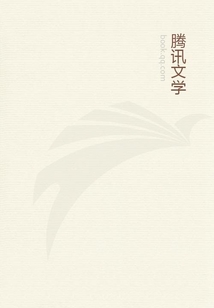
The King of the Golden River
最新章節(jié)
書友吧第1章 PREFACE(1)
"The King of the Golden River" is a delightful fairy tale told with all Ruskin's charm of style, his appreciation of mountain scenery, and with his usual insistence upon drawing a moral. None the less, it is quite unlike his other writings. All his life long his pen was busy interpreting nature and pictures and architecture, or persuading to better views those whom he believed to be in error, or arousing, with the white heat of a prophet's zeal, those whom he knew to be unawakened.
There is indeed a good deal of the prophet about John Ruskin. Though essentially an interpreter with a singularly fine appreciation of beauty, no man of the nineteenth century felt more keenly that he had a mission, and none was more loyal to what he believed that mission to be.
While still in college, what seemed a chance incident gave occasion and direction to this mission. A certain English reviewer had ridiculed the work of the artist Turner. Now Ruskin held Turner to be the greatest landscape painter the world had seen, and he immediately wrote a notable article in his defense. Slowly this article grew into a pamphlet, and the pamphlet into a book, the first volume of "Modern Painters." The young man awoke to find himself famous. In the next few years four more volumes were added to "Modern Painters," and the other notable series upon art, "The Stones of Venice" and "The Seven Lamps of Architecture," were sent forth.
Then, in 1860, when Ruskin was about forty years old, there came a great change. His heaven-born genius for making the appreciation of beauty a common possession was deflected from its true field. He had been asking himself what are the conditions that produce great art, and the answer he found declared that art cannot be separated from life, nor life from industry and industrial conditions. A civilization founded upon unrestricted competition therefore seemed to him necessarily feeble in appreciation of the beautiful, and unequal to its creation.
In this way loyalty to his mission bred apparent disloyalty.
Delightful discourses upon art gave way to fervid pleas for humanity. For the rest of his life he became a very earnest, if not always very wise, social reformer and a passionate pleader for what he believed to be true economic ideals.
There is nothing of all this in "The King of the Golden River." Unlike his other works, it was written merely to entertain.
Scarcely that, since it was not written for publication at all, but to meet a challenge set him by a young girl.
The circumstance is interesting. After taking his degree at Oxford, Ruskin was threatened with consumption and hurried away from the chill and damp of England to the south of Europe. After two years of fruitful travel and study he came back improved in health but not strong, and often depressed in spirit. It was at this time that the Guys, Scotch friends of his father and mother, came for a visit to his home near London, and with them their little daughter Euphemia. The coming of this beautiful, vivacious, light-hearted child opened a new chapter in Ruskin's life. Though but twelve years old, she sought to enliven the melancholy student, absorbed in art and geology, and bade him leave these and write for her a fairy tale. He accepted, and after but two sittings, presented her with this charming story.
The incident proved to have awakened in him a greater interest than at first appeared, for a few years later "Effie" Grey became John Ruskin's wife. Meantime she had given the manuscript to a friend. Nine years after it was written, this friend, with John Ruskin's permission, gave the story to the world.
It was published in London in 1851, with illustrations by the celebrated Richard Doyle, and at once became a favorite. Three editions were printed the first year, and soon it had found its way into German, Italian, and Welsh. Since then countless children have had cause to be grateful for the young girl's challenge that won the story of Gluck's golden mug and the highly satisfactory handling of the Black Brothers by Southwest Wind, Esquire.
For this edition new drawings have been prepared by Mr. Hiram P. Barnes. They very successfully preserve the spirit of Doyle's illustrations, which unfortunately are not technically suitable for reproduction here.
In the original manuscript there was an epilogue bearing the heading "Charitie"--a morning hymn of Treasure Valley, whither Gluck had returned to dwell, and where: the inheritance lost by cruelty was regained by love:
The beams of morning are renewed The valley laughs their light to see And earth is bright with gratitude And heaven with charitie.
R.H. COE
CONTENTS
CHAPTER I
HOW THE AGRICULTURAL SYSTEM OF THE BLACK BROTHERS WAS INTERFERED WITH BY SOUTHWEST WIND, ESQUIRE
CHAPTER II
OF THE PROCEEDINGS OF THE THREE BROTHERS AFTERTHE VISIT OF SOUTHWEST WIND, ESQUIRE; AND HOWLITTLE GLUCK HAD AN INTERVIEW WITH THE KING OFGOLDEN RIVER
CHAPTER III
HOW MR. HANS SET OFF ON AN EXPEDITION TO THE GOLDEN RIVER, AND HOW HE PROSPERED THEREIN
CHAPTER IV
HOW MR. SCHWARTZ SET OFF ON AN EXPEDITION TO THEGOLDEN RIVER, AND HOW HE PROSPERED THEREIN
CHAPTER V
HOW LITTLE GLUCK SET OFF ON AN EXPEDITION TO THEGOLDEN RIVER, AND HOW HE PROSPERED THEREIN, WITH OTHER MATTERS OF INTERESTTHE KING OF THE GOLDEN RIVER

